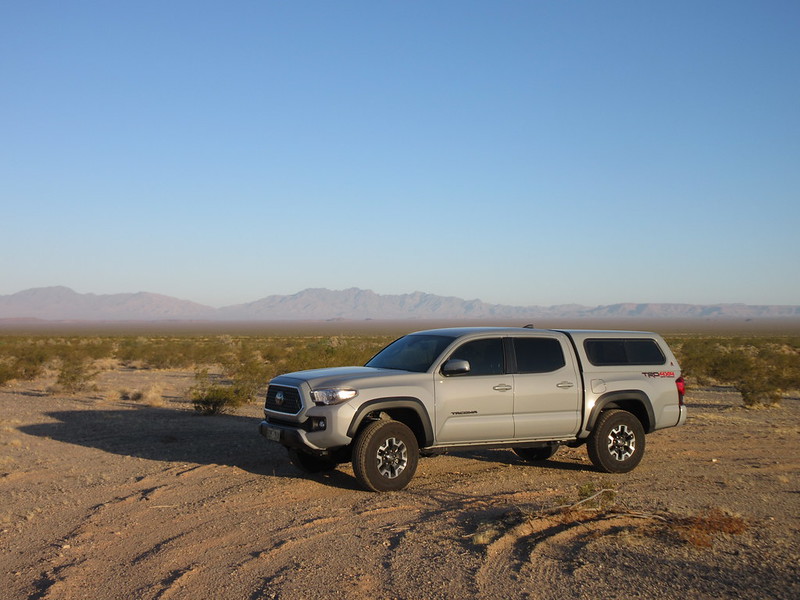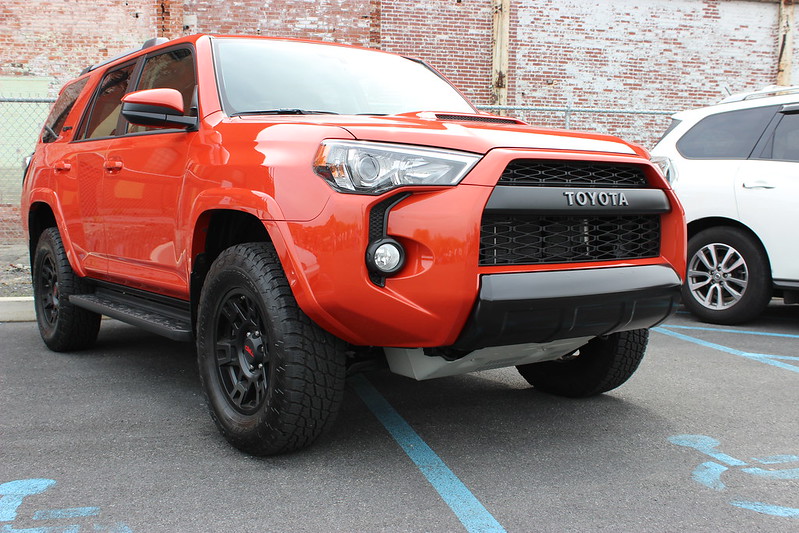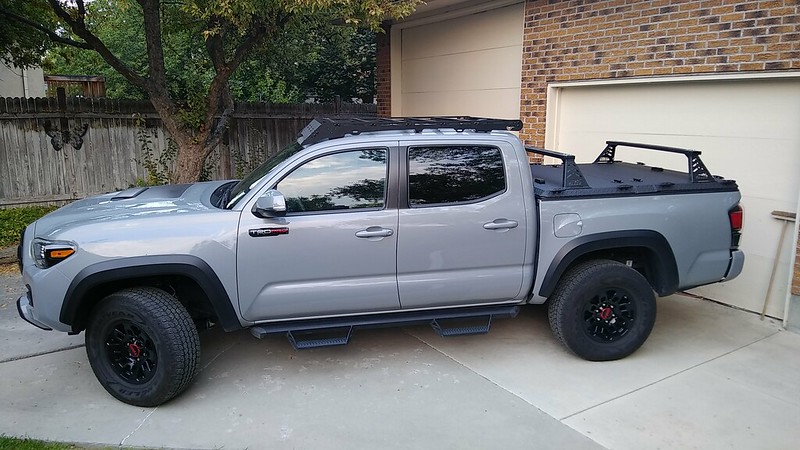tacoma vs 4runner for overlanding
Related Articles: tacoma vs 4runner for overlanding
Introduction
In this auspicious occasion, we are delighted to delve into the intriguing topic related to tacoma vs 4runner for overlanding. Let’s weave interesting information and offer fresh perspectives to the readers.
Table of Content
Tacoma vs. 4Runner: A Comprehensive Overlanding Showdown

The call of the wild beckons, and for many, the journey is best undertaken in a capable, rugged vehicle. The Toyota Tacoma and 4Runner stand as two titans in the off-road world, both renowned for their durability and reliability. Choosing between them for an overlanding adventure, however, requires a deeper dive into their strengths and weaknesses. This comprehensive analysis explores the nuances of each vehicle, highlighting their key attributes and helping you make the informed decision that best aligns with your overlanding aspirations.
Tacoma: The Agile Trailblazer
The Tacoma, a mid-size pickup truck, offers a unique blend of versatility and off-road prowess. Its smaller footprint, compared to the 4Runner, makes it more maneuverable on tight trails and in urban environments. The Tacoma’s available four-wheel-drive system, combined with its robust suspension and powerful engine, allows it to tackle challenging terrain with ease.
Key Advantages:
- Maneuverability: The Tacoma’s compact size grants it superior agility on tight trails, making it ideal for navigating challenging obstacles and tight spaces.
- Versatility: The pickup bed offers unparalleled cargo space and versatility for hauling gear, supplies, and even small campers.
- Fuel Efficiency: Generally, the Tacoma boasts better fuel economy than the 4Runner, a crucial factor for extended off-road journeys.
- Aftermarket Support: The Tacoma enjoys a vast aftermarket community, offering a plethora of upgrades and accessories to customize the vehicle for specific overlanding needs.
Key Considerations:
- Limited Interior Space: The Tacoma’s smaller cabin might feel cramped for longer trips, especially if traveling with multiple passengers.
- Payload Capacity: While the Tacoma’s bed provides ample cargo space, its payload capacity can be a limitation, especially for heavier overlanding setups.
4Runner: The Unstoppable Off-Road King
The 4Runner, a mid-size SUV, is renowned for its legendary off-road capability and robust construction. Its larger size, combined with its powerful engine and advanced four-wheel-drive system, allows it to confidently tackle even the most demanding terrain.
Key Advantages:
- Spacious Interior: The 4Runner offers ample passenger space and cargo room, making it comfortable for long journeys and accommodating larger groups.
- Superior Ground Clearance: The 4Runner boasts greater ground clearance than the Tacoma, enabling it to navigate obstacles and rough terrain with ease.
- Off-Road Prowess: The 4Runner’s advanced four-wheel-drive system, coupled with its robust suspension, provides exceptional traction and stability in challenging off-road conditions.
- Safety Features: The 4Runner offers a comprehensive suite of safety features, including advanced driver assistance systems, providing peace of mind during extended journeys.
Key Considerations:
- Fuel Consumption: The 4Runner’s larger size and powerful engine lead to higher fuel consumption compared to the Tacoma, impacting fuel costs for extended trips.
- Limited Versatility: The 4Runner’s lack of a pickup bed limits its cargo carrying capacity, requiring additional roof racks or trailers for transporting bulky gear.
Beyond the Basics: A Deeper Dive into Overlanding Considerations
Engine Performance and Fuel Efficiency:
- Tacoma: The Tacoma offers a choice of engines, including a 2.7L four-cylinder and a 3.5L V6. The V6 provides ample power for off-roading, while the four-cylinder offers better fuel economy.
- 4Runner: The 4Runner is equipped with a 4.0L V6 engine that delivers robust power for off-road adventures. However, its fuel efficiency falls short of the Tacoma’s V6 option.
Off-Road Capabilities and Suspension:
- Tacoma: The Tacoma’s off-road capabilities are enhanced by its available TRD Off-Road package, which includes features like a locking rear differential, Bilstein shocks, and an electronically controlled rear differential.
- 4Runner: The 4Runner offers multiple trims, including the TRD Pro and Trail editions, which feature upgraded off-road components, such as Fox shocks, a crawl control system, and a multi-terrain select system.
Comfort and Convenience:
- Tacoma: The Tacoma’s cabin is functional and comfortable, but it may lack some of the luxurious features found in the 4Runner.
- 4Runner: The 4Runner provides a more spacious and comfortable interior with premium seating and features like a panoramic sunroof and a premium sound system.
Technology and Safety Features:
- Tacoma: The Tacoma offers a variety of technology features, including a touchscreen infotainment system, Apple CarPlay and Android Auto compatibility, and a suite of safety features.
- 4Runner: The 4Runner boasts a more advanced suite of technology and safety features, including a larger touchscreen infotainment system, a head-up display, and a comprehensive suite of driver assistance systems.
Cost Considerations:
- Tacoma: The Tacoma is generally more affordable than the 4Runner, both in terms of purchase price and ongoing maintenance costs.
- 4Runner: The 4Runner commands a higher price tag, reflecting its premium features and off-road capabilities.
FAQs: Tacoma vs. 4Runner for Overlanding
1. Which vehicle is better for off-roading?
Both vehicles excel in off-roading, but the 4Runner boasts greater ground clearance and more advanced four-wheel-drive systems, making it the ideal choice for extreme off-road adventures.
2. Which vehicle is more fuel-efficient?
The Tacoma generally offers better fuel economy, especially when equipped with the four-cylinder engine.
3. Which vehicle has more cargo space?
The 4Runner offers more passenger and cargo space, while the Tacoma provides a pickup bed for greater versatility.
4. Which vehicle has a better aftermarket support?
The Tacoma enjoys a larger aftermarket community, offering a wider range of upgrades and accessories for overlanding.
5. Which vehicle is more expensive?
The 4Runner is generally more expensive than the Tacoma, both in terms of purchase price and maintenance costs.
Tips for Choosing the Right Vehicle:
- Consider your overlanding style: Determine your preferred terrain, travel distance, and group size.
- Assess your budget: Factor in the purchase price, maintenance costs, and potential upgrades.
- Test drive both vehicles: Experience their handling, comfort, and off-road capabilities firsthand.
- Research aftermarket options: Explore available upgrades and accessories to customize your vehicle for specific needs.
- Seek advice from experienced overlanders: Consult with individuals who have extensive overlanding experience.
Conclusion:
The choice between the Tacoma and 4Runner for overlanding ultimately depends on your individual needs and priorities. The Tacoma offers agility, versatility, and fuel efficiency, making it ideal for shorter trips and navigating tight trails. The 4Runner provides unmatched off-road prowess, spaciousness, and comfort, making it the preferred choice for extended journeys and challenging terrain. By carefully considering your overlanding goals and evaluating each vehicle’s strengths and weaknesses, you can make an informed decision that leads you to unforgettable adventures.








Closure
Thus, we hope this article has provided valuable insights into tacoma vs 4runner for overlanding. We thank you for taking the time to read this article. See you in our next article!